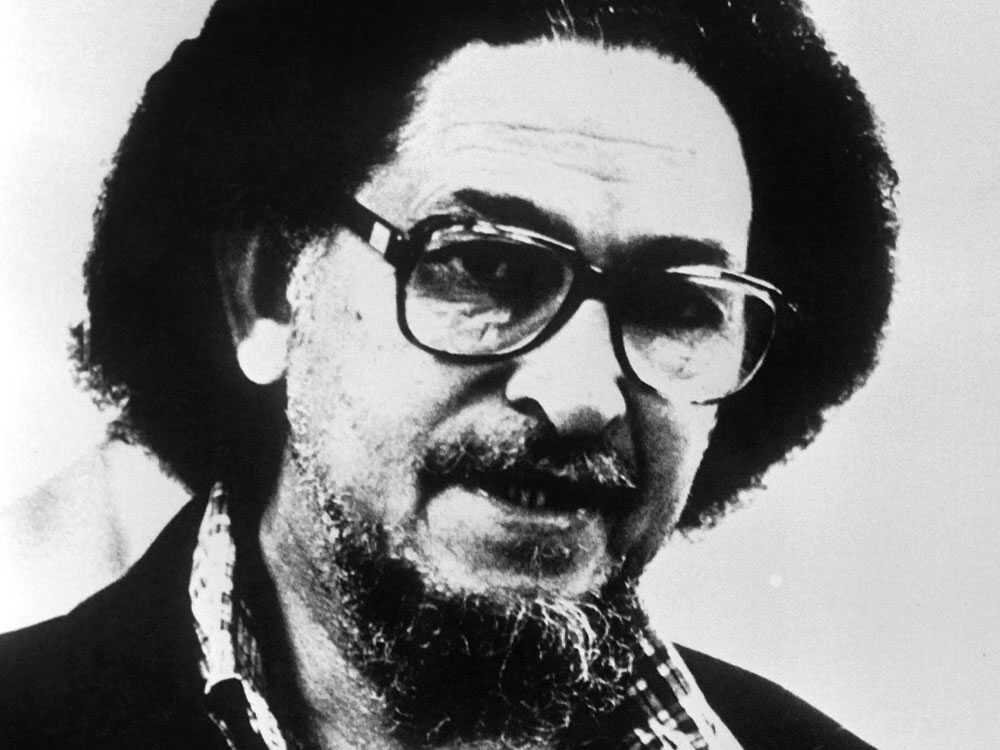At a Funeral by Dennis Brutus: Poem Analysis: “At a Funeral” by Dennis Brutus is a poignant poem that explores the themes of grief, loss, and the passing of time.
At a Funeral by Dennis Brutus
Black, green and gold at sunset: pageantry
And stubbled graves: expectant, of eternity,
In bride’s-white, nun’s-white veils the nurses gush their bounty
Of red-wine cloaks, frothing the bugled dirging slopes
Salute! Then ponder all this hollow panoply
For one whose gifts the mud devours, with our hopes.
Oh all you frustrate ones, powers tombed in dirt,
Aborted, not by Death but carrion books of birth
Arise! The brassy shout of Freedom stirs our earth;
Not death but death’s-head tyranny scythes our ground
And plots our narrow cells of pain defeat and dearth:
Better that we should die, than that we should lie down
A poem analysis of “At a Funeral” by Dennis Brutus
Here is a detailed analysis of the different literary elements in the poem:
Background:
The poem is set at a funeral, where mourners have gathered to pay their last respects to the deceased. The speaker describes the various sights and sounds of the occasion, including the “crisp salute” of the soldiers and the “slow parade” of the mourners. This background helps to set the tone and atmosphere of the poem, creating a sense of gravity and solemnity.
Definition of the words used in the Poem
| Word | Meaning |
|---|---|
| Pageantry | Showy display or ceremony |
| Stubbled | Short, protruding, rough |
| Expectant | Anticipating, awaiting |
| Eternity | Endless, infinite, timeless |
| Gush | Rapidly flowing |
| Bounty | Abundance, generosity |
| Frothing anger | Foam from the mouth due to illness or excitement |
| Bugled | Played on a bugle, a trumpet-like instrument often used in funerals |
| Dirging | Performing a funeral song |
| Ponder | Contemplate, think deeply about |
| Hollow | Empty, void, meaningless |
| Panoply | Impressive array/collection |
| Devours | Consumes, annihilates |
| Carrion | Decaying flesh of a dead animal |
| Brassy | Brass-like musical instrument, such as a trumpet |
| Death’s head | Human skull, emblem of mortality and death |
| Tyranny | Harsh, oppressive government or use of power |
| Scythes | Cuts down, eliminates |
| Dearth | Shortage, scarcity, lack |
AT A FUNERAL – DENNIS BRUTUS
Black, green, and gold at sunset: pageantry
And stubbled graves: expectant, of eternity,
In bride’s-white, nun’s-white veils the nurses gush their bounty
Of red-wine cloaks, frothing the bugled dirging slopes
Salute! Then ponder all this hollow panoply
For one whose gifts the mud devours, with our hopes.
Oh, all you frustrate ones, powers entombed in dirt,
Aborted, not by Death but carrion books of birth
Arise! The brassy shout of Freedom stirs our earth;
Not death but death’s head tyranny scythes our ground
And plots our narrow cells of pain, defeat, and dearth:
Better that we should die, than that we should lie down
About the Poet: Dennis Brutus
Dennis Brutus, a poet of Coloured descent, was born in Zimbabwe but spent the majority of his life in South Africa. He completed his education at the prestigious University of Fort Hare, which has produced several African leaders and notable figures. Following his graduation, Brutus pursued a career in education, teaching both English and Afrikaans at various high schools throughout South Africa after 1948.
Unfortunately, Brutus’ vocal opposition to apartheid eventually led to his dismissal from his teaching positions. His political activism and unwavering commitment to social justice resulted in him being banned by the South African government. Despite facing adversity, Brutus continued to fight against apartheid, even after he was forced to flee to Mozambique.
While in Mozambique, Brutus was captured and returned to South Africa. During an attempt to escape, he was shot and subsequently imprisoned on Robben Island for 16 months. His time on the island brought him in close proximity to another anti-apartheid icon, Nelson Mandela, whose cell was adjacent to Brutus’.
After serving his sentence, Brutus left South Africa and went into exile in Britain. He continued to advocate for the end of apartheid from abroad. In 1990, the South African government finally “unbanned” him, allowing him to return to his home country. Upon his return, Brutus took up a position at the University of KwaZulu-Natal, where he continued to contribute to the intellectual and political life of the nation.
In his later years, Brutus settled in Cape Town, where he passed away from prostate cancer on December 26, 2009. Throughout his life, Dennis Brutus remained a steadfast advocate for justice, equality, and the end of apartheid, and his poetry and activism left an indelible mark on South Africa and the world.
Poem Summary and Meaning:
The poem tells the poignant story of a young woman named Valencia Majombozi, an African woman who overcame immense obstacles to become a doctor, thanks to the unwavering support and sacrifices made by her parents. Against all odds, Valencia earned her medical degree and successfully completed her internship. Tragically, in a cruel twist of fate, she lost her life during the Sharpeville Massacre, shortly after starting her career as a doctor.
The speaker, who attended Valencia’s funeral, reflects on the years of struggle and sacrifice that ultimately amounted to nothing. The poem can be interpreted as an expression of thwarted and unfulfilled dreams, highlighting the harsh reality faced by many oppressed individuals. These people are unable to reach their full potential and live their lives to the fullest due to the limitations imposed upon them by their circumstances.
The poem also carries a powerful message of resistance and perseverance. The speaker implores the oppressed to rise up against their circumstances and fight for their rights – “Arise!”. In the face of such adversity, the speaker contends that it is better to die than to succumb to a life marked by “defeat and dearth.” The poem serves as a call to action, urging individuals to actively challenge the oppressive forces that hold them back, rather than passively accepting their fate.
Analysing the Title: “At a Funeral”
The title of the poem, “At a Funeral,” immediately establishes the somber and reflective tone of the piece. It situates the reader at a funeral, a solemn event where people gather to mourn the loss of a loved one and celebrate their life. In this case, the poem is dedicated to Valencia Majombozi, making it deeply personal and evoking a stronger emotional response from the reader.
The specificity of the title underscores the poet’s intention to pay tribute to Valencia and her tragically short-lived accomplishments. By emphasizing that her dreams and hopes were destroyed by death “shortly after qualifying,” the poet conveys a sense of frustration and aborted hopes. This detail intensifies the reader’s feelings of sadness and injustice, as Valencia’s hard-earned success is abruptly taken away from her.
Furthermore, the title invites the reader to reflect on the broader implications of Valencia’s story. “At a Funeral” serves as a reminder of the fleeting nature of life and the vulnerability of dreams and aspirations, particularly for those living under oppressive circumstances. By focusing on a specific individual and her tragic fate, the poet encourages the reader to empathize with Valencia’s story while also contemplating the larger themes of loss, sacrifice, and the struggle for freedom and self-actualization.
In summary, the title “At a Funeral” effectively sets the stage for a poignant and thought-provoking exploration of one individual’s life and untimely death. The poem pays tribute to Valencia Majombozi while also delving into the universal themes of loss, unfulfilled dreams, and the resilience of the human spirit in the face of adversity.
Line-by-line Analysis of the Poem
LINE 1 Black, green, and gold at sunset: pageantry
The poem operates on a political level, referencing the African National Congress (ANC) flag, which is black, green, and gold. The colors are not coincidental, as many of the doctor’s colleagues attending the funeral wore university robes adorned with black caps and gowns, gold hoods for arts degrees, and green for science degrees. The colors symbolize the struggle against apartheid. The sunset represents the end of the day, symbolizing death and evoking a somber mood filled with darkness and sadness. The pageantry suggests a ceremonial display, which ultimately seems insignificant in the face of the young doctor’s death and the dashed hopes and dreams it signifies.
LINE 2 And stubbled graves: expectant, of eternity,
Stubbled graves refer to the neglected and untidy appearance of the graves, covered in dead grass stalks. The graveyard is personified as being hungry or expectant for more bodies, emphasizing the inevitability of death. The term eternity is ambiguous, either suggesting that the dead will remain in their graves for an eternity or referring to the belief that the afterlife will not end.
LINES 3-4 In bride’s-white, nun’s-white veils the nurses gush their bounty Of red-wine cloaks, frothing the bugled dirging slopes
Nurses from the hospital attended the funeral wearing white veils, reminiscent of brides and nuns, symbolizing innocence, purity, holiness, and new life. The nurses are willing to give everything to save the lives of those fighting for liberation. The terms gush and bounty emphasize the abundance of grief displayed by the nurses. The frothing highlights the number of nurses present, and the bugled dirging suggests a military funeral, with the land itself seemingly mourning the young doctor.
LINE 5 Salute! Then ponder all this hollow panoply
The command Salute! signifies honoring or saluting the dead, as one would a soldier. The speaker asks the reader to ponder or contemplate the implications of the funeral and death in general, encouraging them to look beyond the superficial display that lacks sincerity. The hollow panoply refers to the seemingly meaningless ceremony with flags and speeches, which ultimately changes nothing.
LINE 6 For one whose gifts the mud devours, with our hopes.
The term ‘one’ refers to Valencia Majombozi (deceased), and ‘gifts’ refers to her ability as a doctor to heal and bring comfort to others. The term devour emphasizes that all her hopes and those of her people are now buried in the earth, creating a tone of despair and sadness.
LINE 7 Oh all you frustrate ones, powers tombed in dirt,
The poet uses an apostrophe (a figure of speech) to address the dead directly. The dead are powerful enough to cause frustration (to the government) rather than being passively frustrated. They are described as powers tombed in dirt, indicating that their potential is buried because of their deaths.
LINE 8 Aborted, not by Death but carrion books of birth
The dead are described as being aborted (i.e., killed before they could live), not by Death but by carrion books of birth, a reference to the Pass Books that symbolize the cruel apartheid laws. The apartheid government is considered even more cruel and deadly than death itself.
LINE 9 Arise! The brassy shout of Freedom stirs our earth;
The dead are directly addressed and told to rebel or “Arise!” against the government, with the exclamation mark emphasizing the command’s defiant tone. “Freedom” is capitalized to show its importance, personified as shouting to wake the dead. Describing Freedom’s shout as brassy refers to the bugle in line 4, which was used to play the “dirge”/Last Post. Here, music does not send the dead to their rest but awakens them.
LINE 10 Not death but death’s-head tyranny scythes our ground
Understanding the symbol of “death’s-head tyranny” is helpful: the skull and crossbones insignia used by the Nazis, who are regarded as great heroes by the South African regime and imitated by its people. The poet compares the South African apartheid government to the death-head wearing Nazis in World War 2. Scythes refers to the violent cutting down of lives, and “our ground” references the land where the Group Areas Act excluded people of color.
LINE 11 And plots our narrow cells of pain defeat and dearth
Plots here is a pun, referring to a small piece of land (e.g., a plot where a grave is dug) or planning something, often with evil intent. Narrow cells of pain could refer to graves, prison cells where apartheid prisoners were jailed, or the small houses in disadvantaged areas where people of color were forced to live due to the Group Areas Act. Dearth means things that are in short supply, such as food or basic necessities. The poet implies that pain, suffering, and death were deliberately caused by the apartheid government.
LINE 12 Better that we should die, than that we should lie down –
The term “lie down” suggests surrendering or submitting. The poet implies that it is better for people to resist apartheid and die rather than give up or surrender. The absence of a full stop after “we should lie down” indicates that there is no end to resistance and no surrender. This line also implies that the poet has come to terms with the tragedy of the young doctor’s death—she died rather than choosing to “lie down” or surrender to apartheid, and the poet sees this as “better.” The poet uses “we” and thus identifies with the struggle against apartheid.
Diction:
The use of diction in “At a Funeral” by Dennis Brutus is significant in conveying the poem’s themes and emotions. The poet carefully chooses words that evoke strong imagery and enhance the reader’s understanding of the message. Some examples of the diction used in the poem include:
- “Pageantry”: The word “pageantry” refers to an elaborate display or ceremony, which sets the stage for the funeral scene and conveys the gravity of the situation.
- “Stubbled”: The adjective “stubbled” describes the graves as rough and protruding, reflecting the hardships faced by the oppressed people.
- “Expectant”: The word “expectant” suggests anticipation, highlighting the idea of waiting for change or freedom that the oppressed people long for.
- “Eternity”: The term “eternity” emphasizes the timeless and unending nature of the sacrifices made in the fight against apartheid.
- “Frothing”: The verb “frothing” creates an image of intense emotion, such as anger or excitement, further adding to the poem’s sense of urgency and despair.
- “Bugled dirging”: This phrase refers to the playing of a funeral song on a bugle, a trumpet-like instrument, which contributes to the somber atmosphere of the funeral scene.
- “Hollow”: The adjective “hollow” implies emptiness and meaninglessness, which characterizes the feelings of the speaker as they reflect on the futility of the sacrifices made by Valencia and her family.
- “Carrion”: The word “carrion” refers to the decaying flesh of a dead animal, symbolizing the idea of wasted potential and the tragic consequences of the apartheid regime.
The diction used in the poem is carefully chosen to create vivid imagery, evoke emotions, and emphasize the themes of oppression, sacrifice, and the struggle for freedom. Through his word choices, Brutus is able to effectively convey the complex emotions and ideas that underpin the poem’s message.
Rhyme and meter:
The poem “At a Funeral” by Dennis Brutus does not follow a consistent rhyme scheme or meter. The lack of a structured rhyme pattern and meter contributes to the overall sense of unease and unpredictability that reflects the poem’s themes of frustration, unfulfilled dreams, and the harsh reality faced by those living under the apartheid regime.
The absence of a regular rhyme scheme and meter also allows the poet to focus on the content and imagery, enabling the reader to become immersed in the emotional and thematic aspects of the poem rather than being distracted by a predictable rhythmic structure. This choice reflects the poem’s intention to provoke thought and evoke strong emotions in the reader, rather than adhering to traditional poetic conventions.
Imagery:
Imagery in this poem plays a crucial role in conveying the emotions and themes associated with the tragic story of Valencia Majombozi and the broader context of apartheid in South Africa. Some examples of the imagery used in the poem include:
- “Black, green, and gold at sunset”: This imagery represents the colors of the African National Congress (ANC) flag, invoking a sense of national pride and the fight for freedom.
- “Stubbled graves”: The description of graves as “stubbled” creates a visual image of rough, protruding surfaces, symbolizing the harsh reality and difficulties faced by the oppressed.
- “Expectant, of eternity”: This image suggests that the graves are waiting for eternity, emphasizing the timeless nature of the sacrifices made by those who fight for freedom.
- “Nurses gush their bounty of red-wine cloaks, frothing the bugled dirging slopes”: The vivid imagery of nurses with red-wine cloaks and the sound of funeral music creates a somber atmosphere, painting a picture of a funeral scene and emphasizing the gravity of the situation.
- “Hollow panoply”: The use of “hollow” to describe the panoply (impressive display or array) suggests that the elaborate ceremonies and displays associated with the funeral are ultimately empty and meaningless in the face of such tragic loss.
- “The mud devours”: This imagery personifies the mud as a force that consumes and destroys, emphasizing the futility of the sacrifices made by Valencia and her family.
- “The brassy shout of Freedom”: The imagery of a “brassy shout” stirs a sense of strength, determination, and resilience, as the call for freedom rings out loudly and boldly.
By employing vivid and evocative imagery, the poem allows readers to visualize and emotionally connect with the somber funeral scene, the tragedy of Valencia Majombozi’s story, and the broader struggle against apartheid in South Africa.
Tone and mood:
Tone:
- The tone of the poem is somber and reflective, as the speaker mourns the tragic loss of Valencia Majombozi and contemplates the senselessness of her death. The tone also carries a sense of defiance and determination, particularly when the speaker encourages the oppressed to rise up and fight against the injustice they face.
Mood:
- The mood of the poem is predominantly melancholic and somber, evoking feelings of sorrow, frustration, and anger. The reader is likely to empathize with the sense of loss and the unfulfilled dreams of Valencia Majombozi and others like her. However, the poem also stirs a sense of hope and resilience, as the speaker’s call to action inspires a determination to challenge and resist the oppressive forces that cause such suffering.
Themes of the Poem:
• Criticizes oppression – The poem condemns the oppressive apartheid government, which systematically denied basic human rights to the majority of the population, particularly black individuals.
• Call to arms – The speaker encourages people to rise up and fight for their freedom, urging them not to be complacent in the face of injustice.
• Frustrated and aborted hopes – The poem highlights the tragic reality of innocent young black lives, who are often denied the opportunity to reach their full potential due to the oppressive apartheid regime.
• Years of Sacrifice that end in nothing – The poem underscores the heart-wrenching truth that, despite years of struggle and sacrifice, many lives are cut short, and dreams are left unfulfilled.
• Aborted Hopes – The poem focuses on the dashed career aspirations of Valencia Majombozi, a doctor whose life and promising career were abruptly ended by the Sharpeville Massacre.
• The fight against injustice – The poem raises awareness of the ongoing struggle against the apartheid government’s unfair and discriminatory practices, urging people to resist and challenge such injustices.
• Desire for freedom – A strong theme within the poem is the yearning for liberty from the shackles of apartheid and the opportunity for all individuals to live their lives without fear or restrictions.
• Human Sacrifice for a cause – The poem highlights the immense sacrifices made by individuals like Valencia Majombozi and her family, who tirelessly fought for a better future, even in the face of seemingly insurmountable odds. This theme serves as a testament to the indomitable human spirit and the lengths people will go to in the pursuit of freedom and justice.
Context:
Dennis Brutus was a South African poet and activist who was imprisoned for his opposition to apartheid. The poem “At a Funeral” was likely written in the context of the struggle against apartheid, and can be seen as a reflection on the toll that the struggle took on those who fought for freedom and justice. The poem can also be seen as a reflection on the human condition and the inevitable passage of time.
Questions and Answers for At a Funeral” by Dennis Brutus
Here are the questions and answers for each line of the poem “At a Funeral” by Dennis Brutus, formatted as H4 headers for easy inclusion in your materials:
Question 1: What do the colors black, green, and gold represent in the first line of the poem?
Answer: The colors black, green, and gold represent the African National Congress (ANC) flag and symbolize the struggle against apartheid. These colors are worn at the funeral, reflecting the political nature of the poem.
Question 2: What is symbolized by the “stubbled graves” mentioned in line 2?
Answer: The “stubbled graves” symbolize neglect and the inevitability of death. They are described as untidy and covered in dead grass, personifying the graveyard as expectant for more bodies.
Question 3: How do the “white veils” and “red-wine cloaks” in lines 3-4 contribute to the poem’s imagery?
Answer: The white veils worn by nurses symbolize innocence, purity, and new beginnings, while the red-wine cloaks represent an abundance of grief and mourning. This imagery contrasts life and death, emphasizing the solemn atmosphere of the funeral.
Question 4: What does “Salute! Then ponder all this hollow panoply” in line 5 suggest about the funeral?
Answer: This line suggests that the funeral, despite its ceremonial display, is superficial and lacks genuine impact. The term “hollow panoply” criticizes the emptiness of the rituals that do not change the harsh realities faced by the mourners.
Question 5: What does the phrase “gifts the mud devours” in line 6 imply about the deceased?
Answer: It implies that the deceased, a young doctor named Valencia Majombozi, had much to offer (“gifts”), but her potential and hopes were buried with her, consumed by the earth (“mud devours”), symbolizing a loss to the community and cause.
Question 6: How is the phrase “powers tombed in dirt” in line 7 significant?
Answer: This phrase highlights the wasted potential of the deceased who could have continued to contribute meaningfully to society. Their power and ability to effect change are now buried, creating a tone of frustration and loss.
Question 7: What does “carrion books of birth” in line 8 refer to?
Answer: “Carrion books of birth” refers to Pass Books under apartheid, symbolizing the oppressive and dehumanizing laws that controlled the lives of black South Africans. These books are depicted as more destructive than natural death.
Question 8: How does the “brassy shout of Freedom” in line 9 influence the poem’s tone?
Answer: The “brassy shout of Freedom” personifies freedom as a loud, awakening force, suggesting a call to action against oppression. It shifts the poem’s tone to one of defiance and mobilization against injustice.
Question 9: Explain the metaphor “death’s-head tyranny scythes our ground” in line 10.
Answer: This metaphor compares the apartheid government to the Nazis, using the symbol of a death’s-head to represent lethal, oppressive rule. “Scythes our ground” suggests the government is violently cutting down lives and destroying communities.
Question 10: What does “plots our narrow cells of pain” in line 11 imply about the living conditions under apartheid?
Answer: It implies that the living conditions under apartheid were deliberately oppressive and restrictive, like being in a small, painful prison cell. The term “plots” also suggests malicious planning by the apartheid regime to impose suffering.
Question 11: What is the significance of choosing to “die” over “lie down” in line 12?
Answer: This choice emphasizes resistance and defiance against apartheid. The poet argues it is better to fight and possibly die than to passively accept oppression, highlighting a preference for active struggle over resignation.





